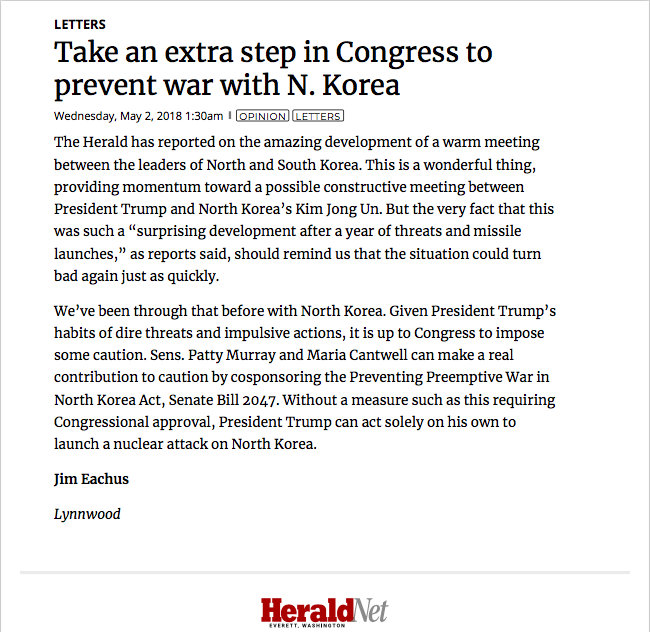Source: psr.org
Why write an LTE?
It's a great way to influence your community and your legislators. The letters page is among the most widely read pages of the newspaper.
- It's free.
- It's easy.
- You can influence the newspaper even if your letter is not printed. Editors take note of how many letters they receive on a given topic. It's like sending an action alert to a legislator – a large volume of letters can determine what topics they are going to cover.
How to write it!
A – B – C, 1-2-3.
A = About. Write about something that's in the newspaper.
Take as your starting point a recent item in the newspaper. Cite the article by headline, author and/or date. Best chance of being printed: responding to an editorial, op-ed, or front-page story. It's best to respond to something from the last few days or week at most.
B = Brief.
Most newspapers have a policy limiting the length of letters. Typically 200-250 words. The policy is usually posted on the paper's letters page or website.
C = Concise.
Keep it short and simple. Make one central point, then stop. (If you have to give a lot of background information or cite a lot of facts, you may need to write an op-ed article, not an LTE.)
1. State the issue.
- Refer to the issue as reported in the newspaper, then say why you agree or disagree.
= OR =
- State the issue as you understand it:
"Nuclear weapons pose a threat to our communities simply by existing."
2. Build your case
- Say your piece in your own voice. Be yourself, be authoritative.
- Are you a health professional, activist, educator, parent, member of a local organization, person of faith, etc? You have an identity and experience that conveys authority - share that in your letter.
- Your words, your expertise, your experience.
- "In my 14 years in the military, I saw first-hand..."
- "My patients' health/my child's health/my health is affected by nuclear weapons."
- "Growing up just 20 miles from the nuclear weapons on Hood Canal..."
- While you stick to the facts, don't be afraid to let your feelings be known too. If you're terrified by the threat of nuclear war, if you're furious at the money spent on nuclear weapons instead of other programs, say so. People don't remember facts. They do remember when you speak from your heart.
3. Call to action.
We're Washington against Nuclear Weapons. We inspire people to take action:
- Say what the reader can do. Be specific: contacting their elected officials about a piece of legislation...attending an event...joining a group or movement (like our coalition!)
- If a legislator or a corporation should take action, mention them. Use their full name.
- If your letter is published, send it to the target legislator or corporation with a brief cover note. This doubles your impact.
Tips & Rules
- Timeliness is critical — submit by e-mail.
- Local connections sell newspapers — newspapers love 'em. So be sure to mention if you:
- live/work/study in the newspaper's home area.
- can cite local connections to nuclear weapons
- are talking about a local politician.
- Sign with your full name.
- State your connection to the coalition or another group you're a part of.
- Use any academic or professional credentials, if you have them.
- For verification purposes, include your home address, e-mail address, and daytime telephone number. These will not be published.
- Disclose any personal or financial interest in the subject matter.
- Edits. Your letter is subject to editing by the newspaper for length, clarity and style. Avoid unhappiness by keeping your letter short.
- Frequency. Most newspapers will print a letter from the same person only every so often, like once a month, especially in large, high-circulation newspapers. So if your intention is to be published, don't submit more frequently. However, if you want to demonstrate reader interest in a subject, you can submit more frequently, especially if you are part of an organized effort to increase editorial coverage of an important topic.
- Uniqueness. Your submission must be unique. When the newspaper runs your LTE, it becomes part of their product — they want to know you have not submitted it to or published it in any other media. Respect this requirement.
Sample LTE
Published by The Herald and submitted by WANW and WPSR member, Jim Eachus!

